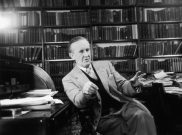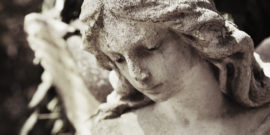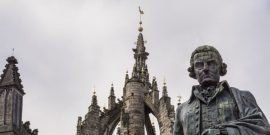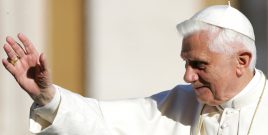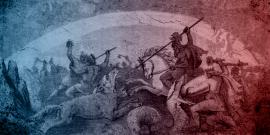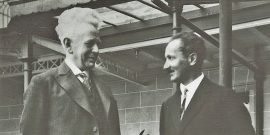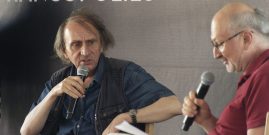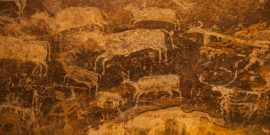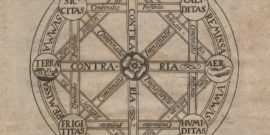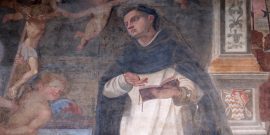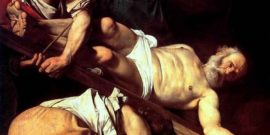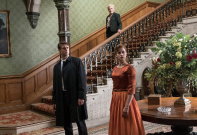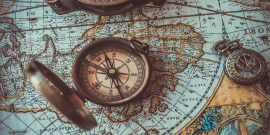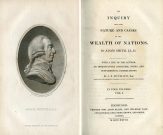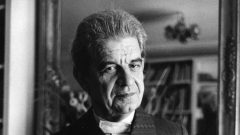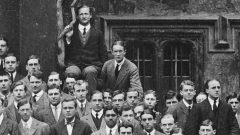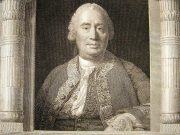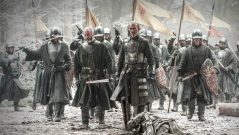War makes nations rise and fall. Wise leaders prepare for it.
Graham McAleer
Glenn Ellmers believes that Leo Strauss’s theory is the only corrective for the philosophical drain on our sovereignty.
Can the recovery from the Bronze Age collapse teach us anything about the debate between market conservatism or national conservativism?
Realists can underappreciate the role of virtue in good statesmanship.
Middle Earth is well stocked with themes from classical literature.
The capacity of the legions to exercise extreme violence was the necessary precondition for the Pax Romana.
Conceding that the American project of globalization has foundered, Robert Kaplan now places his hope in empire.
Do today's war poets take what is highest in civilization and make it serve barbarism?
The Rebel considers what happens when human beings are unwilling to live within the limits placed on them by the cosmos.
Molly Farneth's new book seeks to show progressives can conserve culture too.
For Robert Kaplan, a wise geopolitics needs both maps and great books.
Elisabeth Roudinesco offers a sturdy guide to the delirious adulterations of postmodern theory.
Roger Scruton and Pierre Manent represent a humane conservatism that demonstrates to us the importance of Western civilization.
Robert Kaplan struggles to make sense of populism and its impact on geopolitics.
A new history of the British Isles argues that geography is destiny.
While it has its blind spots, Fukuyama'sThe End of History and the Last Man will continue to influence political thinking.
Graham McAleer discusses how postmodern natural law can help us think more coherently about human beings and our actions.
Francis Fukuyama made the philosophy of history relevant again. Thirty years on, how does his most famous book hold up?
The neoconservatives were once right-wing populists, drawing inspiration from the great thinkers of the Scottish Enlightenment.
Justin Smith wants to show that the internet is not new, but just a refinement of ancient ways of probing the world for information.
No Time to Die wants us to remember that obligations to family, nation, and humankind are the pivot points of the good.
Six German thinkers looked to Cardinal John Henry Newman to defend Christian humanism.
Anarchism has two schools: ancaps who trust free markets and ancoms who trust neither government nor markets.
War shows how the fusion of the state and its population mobilized for war has fostered both progress and atrocities.
Faith and reason envelop one another, Ratzinger believes, and, in doing so, restrict one another.
The Fabric of Civilization builds on Hume: “Can we expect, that a government will be well modelled by a people, who know not how to make a spinning-wheel?"
What might a civilization look like where the founding myth has the world created from the dismembered body of a murder victim?
Wolfram Eilenberger's surprise bestseller explores the lives and thought of four eminent German philosophers.
In laying claim to an older, and more radical, ecclesial political philosophy, Crean and Fimister elide the fullness of the Catholic legal tradition.
Liberalism must grapple with the transcendence of human persons.
Where can thinking with Schopenhauer and Houellebecq take us?
Political order stems human anxiety caused by a primary intuition that existence is out of nothing.
Along with other modern thinkers, Montaigne argues that where there is no truth, there is no law.
No polity, whether Israel or America, will be healthy if it blurs together God and nation.
Irrationality offers all manner of human peculiarities and follies but no clarity on the exact attributes making something irrational.
Strauss returned to Greece to torpedo Aquinas only to find himself outflanked by Heidegger.
Holland is not a believer, but he does want the West, and the woke, to acknowledge their reliance on St. Paul’s belief that a crucified criminal was God.
This is a war going on until only one man stands, the viewer is reminded at the end.
Reno assumes the alternative is between the weak loves of neo-liberalism and the strong loves of a revivified European conservativism.
The contention that non-profit management and government funding expands the arts is hardly defensible.
Phenomenology has been just as important to Catholic theology as to philosophy.
The economy is one big pantomime, one where the tension between Apollonian and Dionysian forces never quite gets resolved.
Is Johns Hopkins University's creation of a private police force a harbinger that in America the future of policing isn't public?
Patagonia produces bespoke fleece vests emblazoned with the names of America’s great financial houses, but now money isn't enough to procure them.
The problem for the boosters of capitalism is that its defenders seem unsure if its energy comes from desire or speech.
Who better than an atheist philosopher to point out the flaws in the arguments of those who insist on a Godless cosmos?
For Smith, commerce is not about consenting to contracts but individuals surfing waters highly charged with solemnities of ritual, trust, and reverence.
Our novelists, from Austen to Christie, spy hints of trouble lurking beneath the placid surface of civilized life.
An incisive look at Elizabeth Holmes' miracle invention that turned out to be a major swindle.
The outlandish actor hosts a podcast that’s well worth a listen. No, really.
A geography lesson from the estimable Robert D. Kaplan.
Are we moderns destined always to think that consciousness ultimately reduces to matter?
Nature and imagination are twins, argued the great thinkers of classical liberalism.
Populism is shot through with the search for nobility, whether in farm animals, vegetables, cakes, sneakers, hubs and engines, or human talents.
Without abolishing the individual, the Scottish Enlightenment nonetheless made solidarity basic to human existence.
Rorty's blend of European postmodern thought and American pragmatism caught on in the universities of 30 years ago.
It is time for those on the right to start exploring Lacan and use him to theoretically advance conservatism.
David Hume’s rational criticism was skeptical; it was not a dogmatic rejection of others’ cherished beliefs.
Graham McAleer is a regular contributor to the magazine Law & Liberty and co-author with Alexander Rosenthal Pubul of The Wisdom of Our Ancestors: Conservative Humanism and the Western Tradition (University of Notre Dame Press, 2023).




